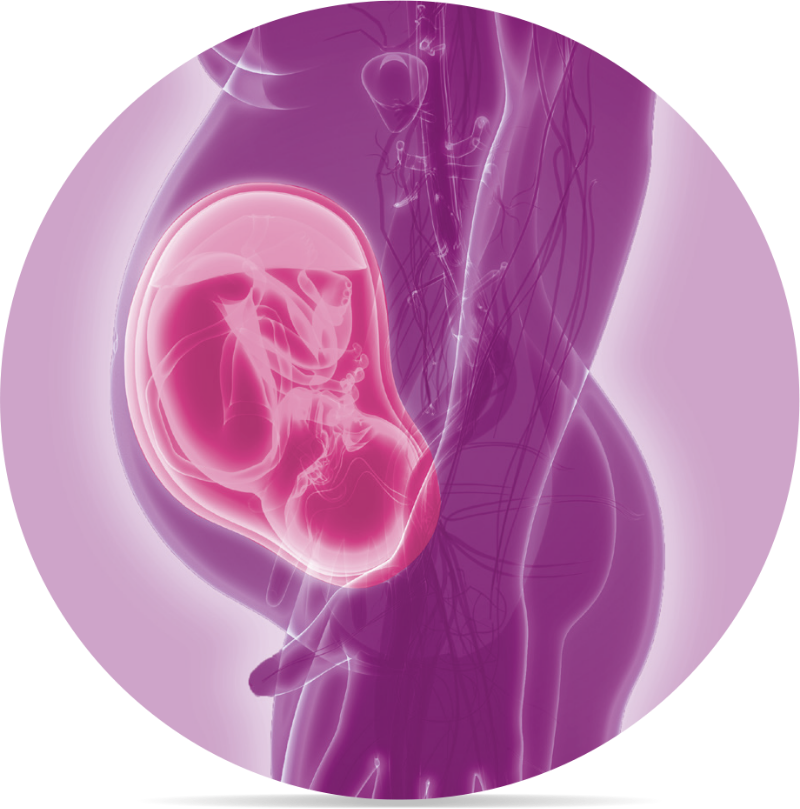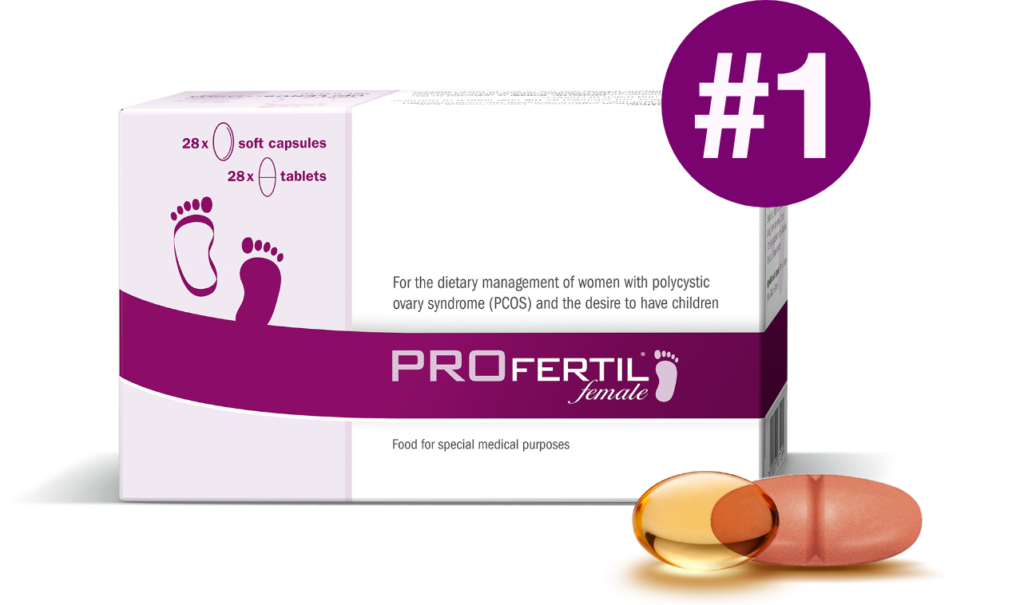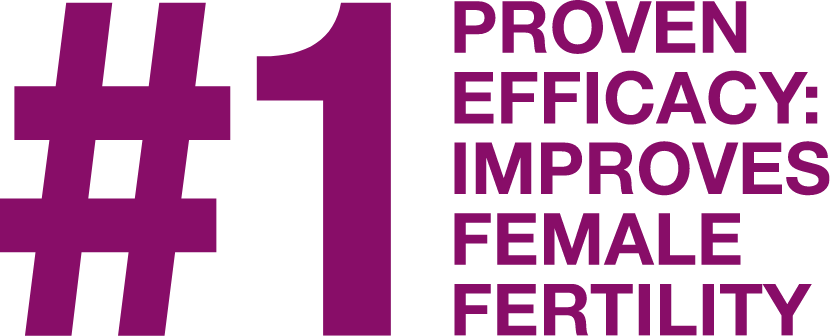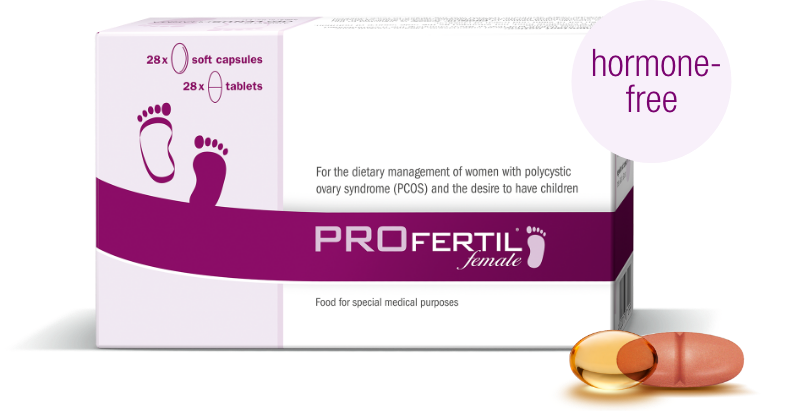What does the female body need to increase fertility?
Fertility is a very complicated overall construct. There is a high potential for susceptibility to interference in this construct. Above all, the hormonal cycle is affected by many influences. Last but not least, environmental factors and stress as well as harmful substances such as alcohol, nicotine and drugs can affect female and male fertility.
The wish to increase female fertility is usually associated with a fertility disorder (fertility is too low) and an existing desire to give birth to a child. The time prior to fertilisation should be used optimally to create the necessary conditions because the female body will then be optimally prepared at the time of conception.
In this context, micronutrients play an important role. These can not only bring the hormone balance into equilibrium, but also relieve other factors that can be largely responsible for fertility disorders. PROFERTIL® female is a study-proven micronutrient combination. The carefully selected formulation demonstrably increases female fertility.


How is PROFERTIL® female taken?
It is recommended to take one tablet and one soft capsule daily with or after a meal. PROFERTIL® female should be used from when the desire to have children sets in until pregnancy occurs. The product should be taken under medical supervision.
PROFERTIL® female is available in a monthly pack with 28 daily doses and a 3-month pack with 84 daily doses.

When does PROFERTIL® female help?
It supports women on their path to having a planned child if:
- the woman has limited fertility (especially over the age of 30)
- the woman has a polycystic ovary syndrome (PCOS)
- the woman is undergoing IVF treatment
Following ovulation and fertilisation, the egg cell moves through the fallopian tube to the uterus. The blastocyst (5-6 day-old embryo) seeks out the best place for implantation in the uterine lining. This is precisely what the uterine lining prepared for at the beginning of the cycle, whereby it developed a fertile lining wall. Once implantation begins (fifth or sixth day after fertilisation), the body receives a signal from the hormones that it is pregnant and ovulation is no longer necessary.
And now for the man
Noting that the cause for an unfulfilled desire to have children lies equally with the man and the woman or in a combination of the two, it is important to create better awareness of the so-called “Male factor”.
If the need to increase male fertility is indicated based on a diagnosis (“Male factor”), all sperm parameters relevant to pregnancy can be demonstrably improved with PROFERTIL® male – this has been study-proven!
What is meant by male infertility?
The following statement is also true for men: If a partner does not become pregnant after 12 months of unprotected intercourse and no medical cause could be diagnosed for her, male infertility may be assumed. A distinction is made between secondary and primary infertility. With regard to the secondary form, the man has already fathered one or more children.
Note: The terms sterility and infertility are often used interchangeably.
The diagnosis of male infertility
In the context of a detailed andrological assessment, the man should undergo a spermiogram (ejaculate analysis). This provides information about the number, shape and motility of the sperm cells. However, DNA breaks in sperm cells are not visible. Additional tests are required for this purpose.

DNA breaks = Loss of genetic information
The cause of a miscarriage can also lie in the man!
During cell division, there is a transfer of DNA. In this way, genetic information is transferred to each new cell. If the genetic information is damaged (broken), the new cell will be incomplete and thus not functional. Consequently, the embryo may not develop completely.
This reduces the chances of successful natural or artificial insemination. The risk of miscarriage is increased.

Useful information about increasing male and female fertility
In general, smoking should be stopped. Too much alcohol is also not recommended. Alcohol consumption and smoking can lead to hormonal fluctuations, irregular menstrual periods and ovulation disorders.
Large weight fluctuations (yo-yo effect) should be absolutely avoided. A BMI of above 30 or below 18.5 is also a matter of concern because the hormone balance and regular monthly cycle can be affected.
A healthy diet with lots of vegetables, which are carefully prepared to preserve the nutrients, is important in combination with lots of fresh fruit to prevent any deficiencies.
The chance of experiencing pregnancy is increased with an at least average level of fitness. Adequate exercise and sport are therefore essential. However, extreme competitive sport can reduce the chance of future pregnancy.
Bisphenol A is a risk factor contained in many plastics. Studies conducted at Harvard University, among others, discovered that it negatively affects the hormone balance. Plastic packaging for drinks and food should therefore be avoided at all costs if the aim is to increase fertility.
In any case, the concomitant intake of PROFERTIL® male and PROFERTIL® female under medical supervision is recommended to maximise the chance of becoming pregnant.
Stress, especially if it is constant, can increase the risk of being infertile. If the stress factors cannot be reduced, then acupuncture, meditation, special yoga exercises and relaxation techniques are good ways of finding rest and relaxation at least temporarily.
Finally, again reference should be made to the positive effect of PROFERTIL® male and PROFERTIL® female. Both are study-proven products which demonstrably increase male and female fertility.




